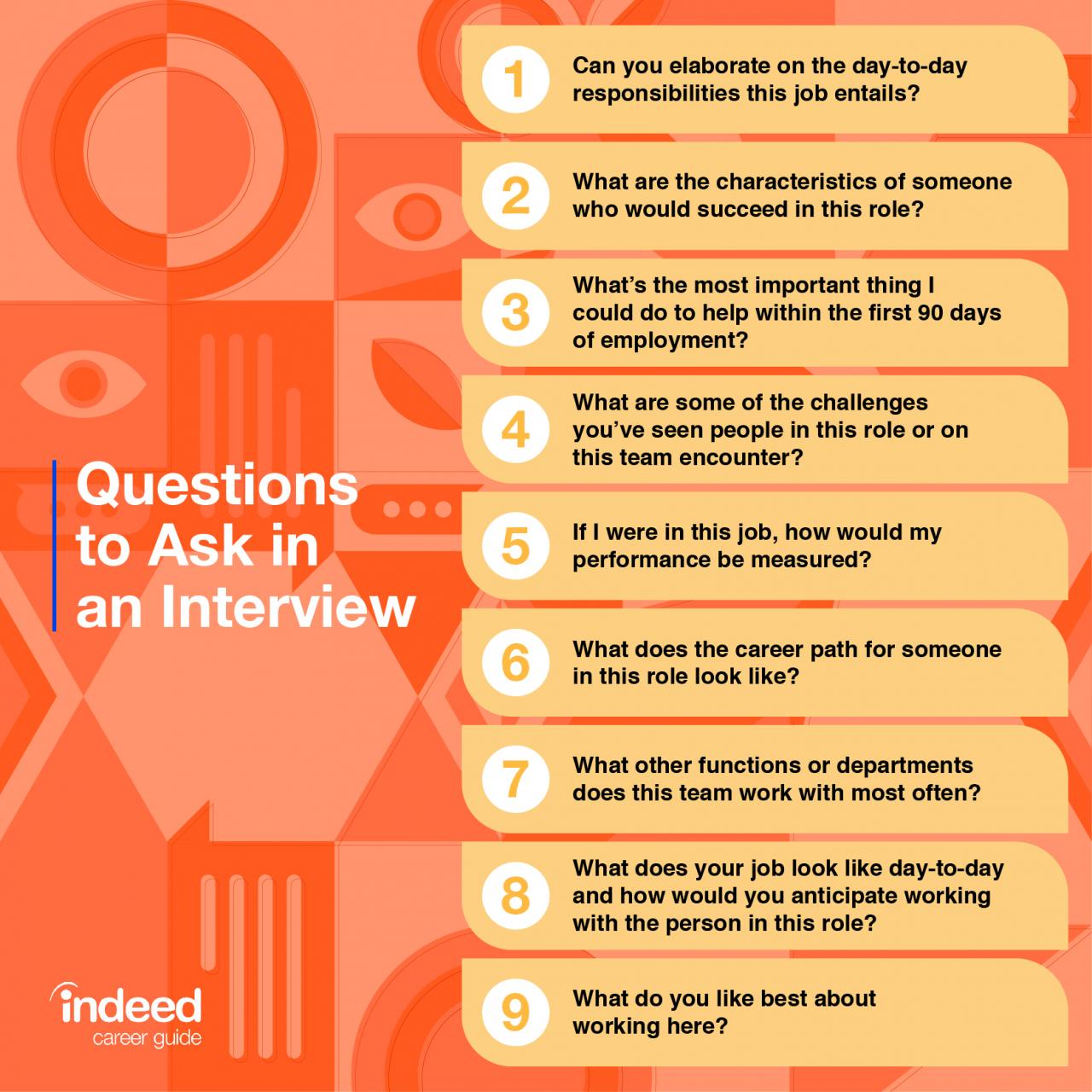Hiring the right talent is crucial for any organization’s success. Interviews play a pivotal role in this process, and asking the right questions is key to unlocking candidate potential. This guide explores the best questions to ask an employee during an interview, empowering you to assess their skills, experience, and cultural fit with precision.
Interviews provide a platform to delve into a candidate’s background, motivations, and aspirations. By crafting well-thought-out questions, you can gain valuable insights into their abilities, work ethic, and alignment with your company’s values.
Best Questions to Ask an Employee During an Interview

Conducting effective interviews is crucial for organizations to identify the most suitable candidates for their open positions. Asking well-crafted questions during interviews allows employers to assess candidates’ skills, experience, and fit for the role.
Types of Questions
- Open-ended questionsencourage candidates to provide detailed responses and share their perspectives. Example: “Tell me about a time you successfully managed a challenging project.”
- Closed-ended questionsrequire specific, concise answers. Example: “Do you have experience using specific software programs?”
- Situational questionspresent hypothetical scenarios to gauge candidates’ decision-making abilities. Example: “How would you handle a customer who is dissatisfied with our product?”
- Behavioral questionsexplore candidates’ past experiences and behaviors. Example: “Give me an example of a time when you demonstrated strong communication skills.”
Question Structure
Effective questions are clear, concise, and specific. Avoid using biased or leading language that could influence candidates’ responses.
Specific Questions
- Skills and Experience
- What specific skills and experiences do you have that make you qualified for this role?
- Can you describe a project where you successfully applied your technical skills?
- Motivation
- What motivates you to work in this field?
- What are your career goals and how does this role align with them?
- Culture Fit
- How would you describe your work style and how do you think it would fit into our team?
- What are your expectations for this role and how do they align with our company values?
Interview Techniques
Establishing a rapport with candidates and creating a comfortable interview environment is essential. Active listening, probing for details, and following up on answers are key interviewing techniques.
Follow-Up Questions
Follow-up questions help clarify answers and gather additional information. Ask questions that delve deeper into candidates’ experiences and perspectives without being repetitive or confrontational.
Ethical Considerations, Best questions to ask an employee during an interview
Respect candidates’ privacy and avoid discriminatory questions. Ensure a fair and unbiased interview process by treating all candidates with dignity and respect.
Closing Notes: Best Questions To Ask An Employee During An Interview
In conclusion, asking the right questions during an interview is an art that requires preparation and strategy. By utilizing the techniques Artikeld in this guide, you can engage candidates in meaningful conversations, uncover their true potential, and make informed hiring decisions.
Remember, the questions you ask shape the interview’s trajectory and ultimately determine the quality of the candidates you bring onboard.
Query Resolution
What are the different types of interview questions?
There are various types of interview questions, including open-ended, closed-ended, situational, and behavioral questions. Each type serves a specific purpose, allowing you to gather information about a candidate’s skills, experiences, and thought processes.
How do I structure effective interview questions?
Effective interview questions are clear, concise, and specific. They should be tailored to the job requirements and avoid biased or leading language. Open-ended questions encourage candidates to elaborate on their answers, providing you with a deeper understanding of their perspectives.
Why is it important to ask follow-up questions?
Follow-up questions allow you to clarify answers, probe for more details, and demonstrate your genuine interest in the candidate. They also give candidates the opportunity to expand on their responses and showcase their communication skills.